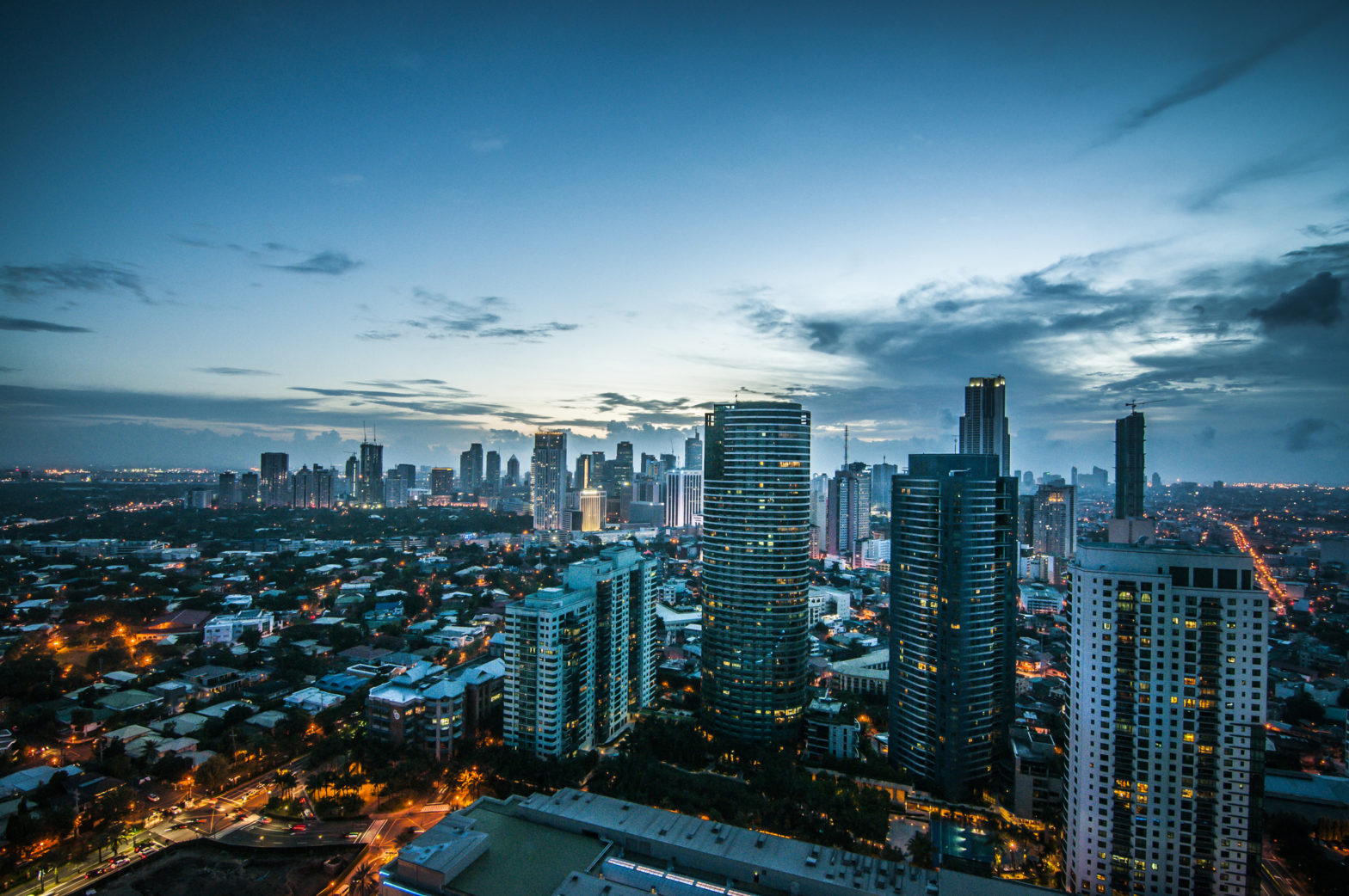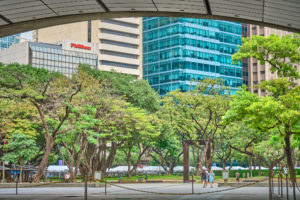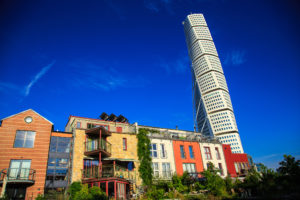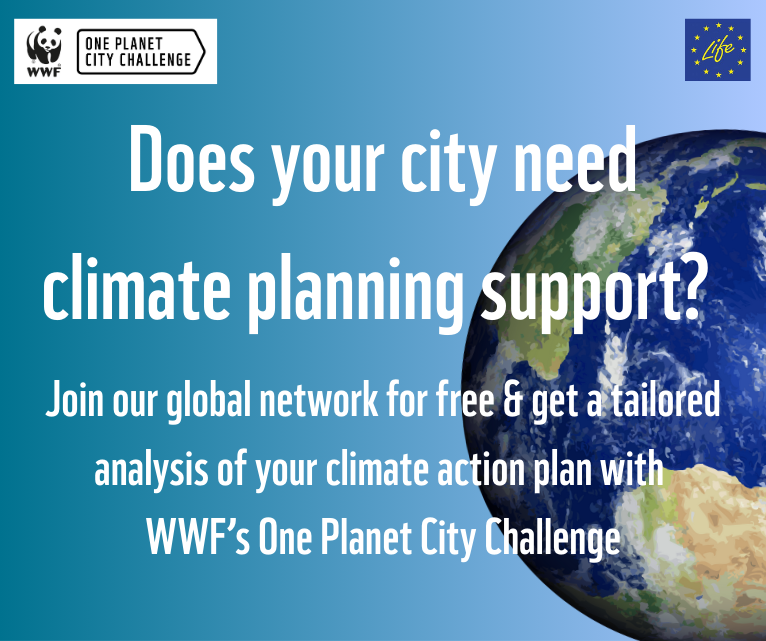
Inside Makati’s push for a greener, smarter city
03 July 2025
In the heart of Metro Manila, the City of Makati–one of the most densely populated areas in the world–is a leading financial and commercial hub with the highest concentration of multinational corporations in the Philippines.
Also known as an entertainment hotspot within the capital region, Makati has positioned itself as a national and regional leader in climate action. With over 56,000 businesses and a daytime population exceeding four million, Makati faces the formidable challenge of balancing rapid urban growth with environmental sustainability.
That challenge has become an opportunity. Over the past decade, Makati has systematically integrated climate resilience into urban planning, energy use, mobility and citizen engagement, anchoring environmental goals within the city’s development priorities.
This strategic direction gained global recognition in 2024 when Makati was named a finalist in WWF’s One Planet City Challenge (OPCC). The jury commended its ambitious, science-aligned climate policies and broad-based sustainability reforms, including alignment with the Paris Agreement’s 1.5°C trajectory for both 2030 and 2050. It was then selected as the national winner in the Philippines.
But for Makati, the One Planet City Challenge has always been about more than awards.

“Makati participated to determine its level of climate action and be assessed by an international jury of climate change experts,” says Anthony Xenon L. Walde, Acting Chief, Planning Division, Department of Environmental Services, City Government of Makati. “By joining One Planet City Challenge, WWF’s technical assistance provided us further knowledge and capacity to accelerate our climate actions, set targets in line with science, and adopt local policies such as Climate Emergency Declaration, GHG Emissions Reduction Target Ordinance, among others.”
Strategic feedback with a local lens
The One Planet City Challenge provides more than a platform for recognition. Each city receives a Strategic Feedback Report, a tailored guidance document based on the latest Intergovernmental Panel on Climate Change findings, aligned with each city’s urban form and climate profile.
Carina Borgström Hansson, a Senior Advisor who leads WWF’s urban work within the One Planet City Challenge, explains: “The strategic feedback gives cities a very clear view of where they are at in terms of performance, and what areas need improvement. The recommendations are tailor-made–from global science down to the local spatial characteristics.”
She adds: “It’s not just a diagnosis, but a guide, something local environmental teams can take to city leadership with confidence. It’s a bridge between science and policy.”
For Makati, that guidance translated into concrete action.
“Prior to joining One Planet City Challenge, the city was lacking a GHG emissions reduction target which may increase the city’s vulnerability to climate change and may not implement impactful climate mitigation measures,” says Walde. “After One Planet City Challenge’s evaluation, WWF and ICLEI helped us to formulate an emission reduction target in line with science that covers community-wide emissions, aligned with the goals of the Paris Agreement, and represents the city’s fair share of global emission reduction.”
From GHG inventory to energy reform
At the heart of Makati’s transformation lies its comprehensive emissions inventory.
“The city studied its greenhouse gas emissions by conducting a GHG inventory and noticed that more than 75 percent of the city’s emissions came from the energy sector,” Walde explains. “As a result, the city implemented a series of energy-related programmes and policies such as the installation of solar panels in public schools, implemented energy efficiency and conservation (EEC) in government buildings, institutionalised the Makati Climate Change Committee (MCCC) and Makati Energy Sector Committee (MESC), adopted the Local Energy Code (LEC) along with Local EEC Plan (LEECP), and Solar Energy Systems Ordinance promoting solar energy use in homes and businesses.”
Nature-based solutions and urban resilience
Makati’s land use planning has likewise been shaped by the Challenge. Its updated Comprehensive Land Use Plan and Zoning Ordinance now incentivises developers to build green and open spaces in exchange for higher floor area ratios. Already, 33 buildings in the city are LEED certified. The city has also converted waterways into linear parks–including Estero Tripa de Gallina in Barangay San Isidro, which has received multiple awards.
“The city also recovered its waterways easements and developed into linear parks providing additional green and open space in the city,” Walde adds. “Challenges are to maintain the cleanliness of the area and extend the development throughout the other three Makati Barangays within jurisdiction of the Estero Tripa de Gallina.”
Borgström Hansson notes: “Nature-based solutions are often the most accessible and impactful forms of climate adaptation for cities. Makati’s integration of open space incentives into zoning is a standout example.”

Democratising climate action
A key feature of the One Planet City Challenge is its emphasis on citizen engagement. Through the ‘We Love Cities’ campaign, WWF invites residents to vote for their city and suggest local improvements. In 2024, Makati took full advantage.
“Last October 2024, the city had the opportunity to join the We Love Cities campaign and maximised the use of digital media in promoting environmental and sustainable activities of the city through social media posting, press release, audio-visual presentations, photo booths, caravan, among others,” Walde says. “We also reached out to our city officials, government employees, private partners, and the Barangays/community to vote for Makati and showcased their simple efforts to help the environment.”

Borgström Hansson highlights this participatory aspect: “We want cities to build competencies, not just in reporting data, but in engaging citizens. The value of integrated action lies in the co-benefits, for citizens and for nature.”
Institutionalising climate governance
Makati’s Local Climate Change Action Plan is not a siloed strategy, it is embedded in city governance. The planning process, developed with ICLEI and WWF support, includes adaptation goals across water, transport, energy, health, food, and communication. The plan identifies vulnerable areas, scores resilience interventions, and sets a monitoring system across city departments.
Joining the OPCC is a way to ensure progress and accountability and joining the challenge requires a city to report to the Carbon Disclosure Project (CDP) every two years. Makati has taken this one step further and is reporting its climate change data and accomplishments annually.
Scaling impact through collaboration
Makati’s partnership with WWF has extended beyond One Planet City Challenge assessments. The city has been an active contributor to peer learning events and webinars hosted by WWF. “We were able to share and showcase our best practices to other cities, encouraging them to also adopt these in their own cities,” Walde says.
Access to the digital tool for cities, created by Futureproofed, has provided specific data to assess the impacts of our climate actions.
Advice to cities: begin with data, anchor in policy
When asked what advice it would give to other cities, Walde is clear: “Just three things. First, conduct a community-wide GHG inventory. Second, formulate an emissions reduction target in line with climate science using the One Planet City Challenge methodology. Third, prioritise some impactful climate change mitigation actions, based on the result of the GHG inventory. In this way, you can monitor and track your carbon emissions savings and thereby your emission targets.”
Borgström Hansson echoes that sentiment: “The One Planet City Challenge is not just about scoring. It’s a dynamic journey where cities build skills and governance mechanisms, using global science to drive local impact.”
More than a decade since its launch, the One Planet City Challenge continues to evolve. With over 900 cities involved to date, and a growing library of peer experiences, the programme has become a global reference point for local climate leadership. And as Makati’s journey shows, the right mix of data, ambition and public support can transform a city’s climate future from aspiration to action.
From the Philippines to Sweden: shared ambition
Makati’s experience can be contrasted with that of Malmö, also engaged in the One Planet City Challenge. Malmö’s climate initiatives reflect the adaptability of the One Planet City Challenge framework across vastly different urban scales and geographies.
Malmö is Sweden’s third-largest and fastest-growing city, home to 365,000 people–nearly half under 35–and residents from 186 countries. Located on the southern coast, it’s known for progressive urban sustainability.
In 2011, Malmö became the first-ever winner of WWF’s One Planet City Challenge (OPCC), recognised for strong climate leadership. In 2024, it was again named Sweden’s OPCC national winner, selected from 20 cities for its bold commitments, including a goal of carbon neutrality by 2030.

Deputy Mayor for the Environment, Sofia Hedén, celebrated the win, saying: “The award is proof of our successful work and that we are heading in the right direction. But it is by no means finished, and we have high ambitions. This recognition also means that all eyes are on us, and we must continue to stay at the forefront of climate action.”
From integrating climate plans into local governance to a pledge for 100 percent renewable or recovered energy by 2030, Malmö continues to lead through:
- A goal of carbon neutrality by 2030
- Walking, biking, and electrified public transport
- Expanded solar and wind power
- Green building via a local roadmap (LFM30)
- Recycling investment and reduced plastic incineration
- Climate adaptation like the Cloudburst Plan and green spaces
- Transparent progress reporting via CDP.
The Challenge’s jury encouraged Malmö to stay focused on measurable emission reductions while balancing broad sustainability goals.
Malmö’s story shows how visionary leadership and collaboration can make cities global climate leaders.
Main image: Helgidinson | Dreamstime.com
If you are interested in joining Makati, Malmö and hundreds of other climate ambitious cities, watch our Welcome Webinar, visit our website panda.org/opcc or email opcc@wwf.se to find out how to join the OPCC.
Brought to you in partnership with:




